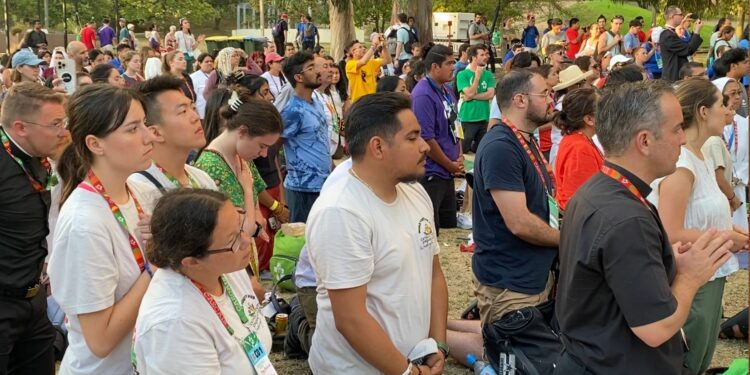The framework highlights mutual listening, mentorship, evangelization, and vocation, noting that formation should take place in the home and through parents, grandparents, and families but can take place in a variety of contexts.
The USCCB will be releasing complementary and supplemental resources this year with concrete ideas for implementing the framework on a local level.
“In this, we encourage ministry leaders and families to establish conditions for mutual listening to take place: where older generations can truly listen to the young and where the young can truly listen to God speaking to them in the Word and the wisdom of the Church,” the document reads.
The document notes that young people “need faith-filled parents and pastoral ministry leaders (and peers) who can lovingly interpret young people’s stories through the lens of faith and foster a conversion of the heart.”
“Too many youth and young adults today lack mentors in their lives, and yet these wisdom figures can do so much to guide a young person along the right path,” it continues. “This experience of accompaniment is something that begins in the family and extends to the teachers, respected adults, Church leaders, and professional connections that a young person encounters as they mature through life.”
The framework explains the importance of conveying the whole Gospel, including what may challenge young people.
“The teachings of Christ are countercultural and transformative: seeking God’s kingdom first above all, loving enemies, living a moral life, and sacrificing one’s own self for the good of others, especially those who are marginalized and forgotten,” the document reads. “It may take time to embrace these truths, and young people should be given loving environments where they can ask questions without judgment and wrestle with difficult issues.”
“As young people are accompanied on a pilgrimage of faith, they need to hear a clear proclamation of the message of salvation, the implications of Gospel living (including the effects of sin), the embrace of God’s mercy, and the unconditional love that Christ offers those who follow him — all inculturated in their lives in a language and style they can understand, appreciate, and appropriate within their own lives,” the document notes.
The document concludes by highlighting that young people have a mission to “go where Christ is calling them,” highlighting the importance of reaching out to the vulnerable and marginalized, embracing the universal call to holiness, and being transformed by Christ through “prayerful openness” while recognizing God’s work in their lives.
Credit: Source link




